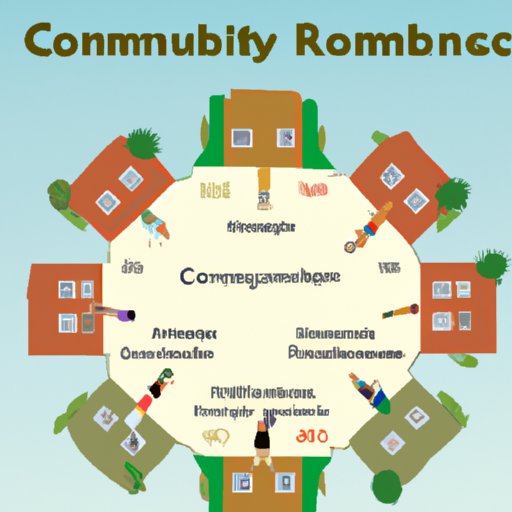Introduction
A commune is a group of people who live together and share resources, often with an intentional focus on creating a lifestyle that minimizes their reliance on the traditional economic system. Living in a commune has both advantages and disadvantages, so it’s important to carefully consider all aspects before taking the plunge. This guide will provide an overview of the steps necessary to start a commune.
Research Other Successful Communes
Before starting your own commune, it’s important to gain an understanding of what other successful communes look like. Researching existing communes can help you to identify common elements of success, such as clear goals and objectives, effective communication among members, and sound financial planning. According to a study published in the Journal of Community Psychology, successful communes also tend to have a strong sense of community, shared values, and a commitment to collective decision-making.
Establish Goals and Objectives
The first step in starting a commune is to create a mission statement that outlines the purpose of the commune and its core values. This statement should be clear, concise, and easily understandable by all members. It’s also important to decide on a form of government for the commune. Some communes use a consensus-based approach, while others opt for a more traditional hierarchical structure.
Financial Planning
Creating a budget is essential for any commune. The budget should include all expected expenses, such as rent, utilities, food, and supplies. It’s also important to plan for how the commune will be funded. Members may choose to pool their resources or seek outside sources of funding, such as grants or donations.
Establish Rules and Regulations
Once the commune is up and running, it’s important to establish rules and regulations to ensure that everyone is on the same page. This should include an agreement outlining the rights and responsibilities of each member, as well as policies for property ownership, decision-making processes, and conflict resolution. Having a written set of rules and regulations can help to prevent misunderstandings and disputes down the line.
Secure Land or a Building
Finally, the commune will need to secure a piece of land or a building suitable for communal living. When choosing a location, it’s important to consider local zoning laws and restrictions that may limit the type of building or activities allowed on the premises. It’s also important to determine the size and type of building that best meets the needs of the commune.
Conclusion
Starting a commune is no small undertaking, but with careful planning and dedication, it can be a rewarding experience. Researching successful communes, establishing clear goals and objectives, creating a budget, and establishing rules and regulations are all important steps in the process. Finally, securing land or a building suitable for communal living is essential for the long-term success of any commune.
(Note: Is this article not meeting your expectations? Do you have knowledge or insights to share? Unlock new opportunities and expand your reach by joining our authors team. Click Registration to join us and share your expertise with our readers.)
